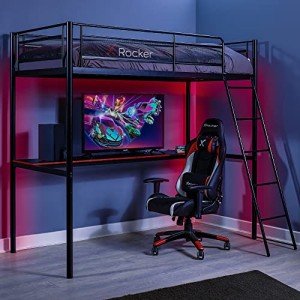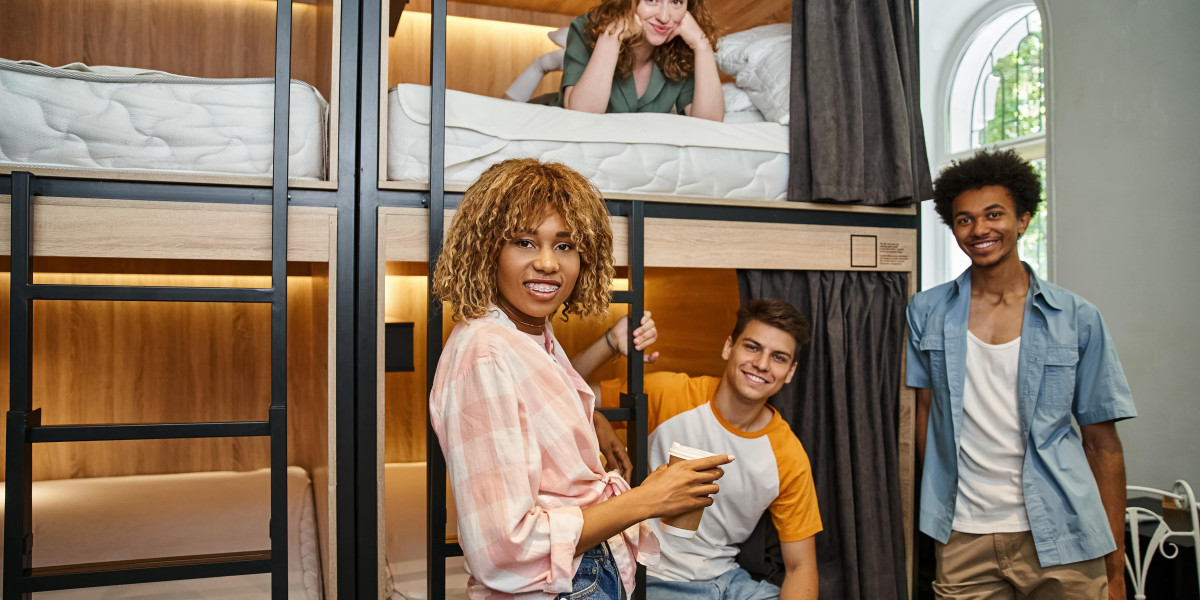The Ultimate Guide to Kids Bunk Beds: Maximizing Space and Fun
With the rise of vertical living and smaller areas, the popularity of bunk beds has actually soared among families. Bunk beds not just provide a useful sleeping option, especially in shared spaces, but they also bring an aspect of enjoyable into a kid's life. This comprehensive guide looks into the functions, advantages, and considerations of kids' bunk bed for sale beds, making it much easier for moms and dads to pick the right bed for their youngsters.
Features of Kids Bunk Beds
Bunk beds are flexible pieces of furniture that serve more than a single purpose. Here are some key functions to consider:

| Feature | Description |
|---|---|
| Material | Bunk beds can be constructed from wood, metal, or a combination of both, providing differing levels of toughness and style alternatives. |
| Safety Features | Many bunk beds come geared up with guardrails, safe ladders, and topped supports for safety, particularly important for children. |
| Style Variety | Options vary from classic styles to contemporary designs, making sure a match for any room design. |
| Space-Efficiency | Bunk beds use vertical space, making them ideal for smaller sized spaces. |
| Convertible Options | Some models can be transformed into two separate beds, offering versatility as children grow. |
| Storage Solutions | Some bunk beds feature integrated storage drawers or shelves, assisting to keep the room organized. |
Advantages of Kids Bunk Beds
Investing in a cheap bunk beds bed comes with a number of advantages:
- Space Saving: Bunk beds optimize flooring Space saving bunk beds, permitting more backyard or storage solutions.
- Fun Factor: With a bunk bed, kids have a location that cultivates imagination and companionship throughout slumber parties or playdates.
- Affordable: Instead of buying 2 different beds, a bunk bed can accommodate two kids at the same time, saving cash in the long run.
- Versatility: Many bunk bed for adults uk beds can be disassembled or converted into twin beds, making them a long-lasting investment as kids's requirements change.
- Social Interaction: Bunk beds encourage family bonding and friendships, offering a welcoming space for kids to share stories and laughter.
Factors to consider When Choosing a Kids Bunk Bed
When choosing the best bunk bed bunk bed for a child, parents ought to consider various aspects:
- Safety Standards: Ensure that the bunk bed adhere to security policies and includes important safety functions.
- Age Appropriateness: Different models deal with various age. For example, conventional bunk beds may not be suitable for more youthful kids.
- Room Dimensions: Measure the bed room to make sure the bunk bed fits properly, enabling space to move around easily.
- Weight Capacity: Consider the weight load of each bed and ensure it accommodates the kid's weight conveniently.
- Style Preferences: Letting kids take part in the choice process can help them feel more thrilled about their brand-new bed.
Kinds Of Kids Bunk Beds
Bunk beds can be found in various designs and configurations to suit numerous needs:
| Type | Description |
|---|---|
| Requirement Bunk Bed | A timeless design with one bed stacked on top of another, normally utilizing a ladder to access the top bunk. |
| L-Shaped Bunk Bed | Functions two bunk beds linked in an L-shape, often more roomy and suitable for kids sharing a space but requiring a bit more space. |
| Triple Bunk Bed | Comprises three stacked beds, ideal for optimizing sleeping plans in very restricted spaces. |
| Loft Bed | A raised bed with space below that can work as a backyard, study corner, or extra storage. |
| Futon Bunk Bed | Combines a bunk bed on leading with a futon or sofa beneath, making it great for pajama parties and making the most of space use. |
| Convertible Bunk Bed | Can be separated into two private beds, offering flexibility as children's requirements change. |
Taking Care Of Kids Bunk Beds
Preserving bunk beds is vital for ensuring durability and security. Here are some easy care practices:
- Regular Inspections: Check the bed routinely for loose screws and tightened up bolts to guarantee stability.
- Tidiness: Keep bedding clean and fresh, turning bed mattress for even use.
- Guardrails: Ensure guardrails are secure and in place, especially if kids tend to move around a lot in their sleep.
- Air Circulation: Ensure the bed has adequate airflow, avoiding wetness accumulation that can result in mold or mildew.
FAQs About Kids Bunk Beds
Q1: At what age can a kid safely utilize a bunk bed?
A1: Generally, children aged 6 and older are considered safe to use the upper bunk due to the height and stability factors involved.
Q2: Can I position a bunk bed near a window?
A2: It is recommended to prevent putting a bunk bed near windows to lower the risk of falling or injuries.
Q3: Are bunk beds safe for younger kids?
A3: While some contemporary bunk beds include safety functions accommodating more youthful kids, it is normally suggested to wait till they are older, usually over six years.
Q4: What is the normal weight limitation for leading bunks?
A4: Weight limitations differ by model but usually range from 150 to 250 pounds. Constantly describe the maker's specs.
Q5: How often should I check the bunk bed's security features?
A5: It is recommended to perform a safety check every few months or whenever you see any indications of wear.
Kids' bunk beds act as a strategic solution for households wanting to take full advantage of space while providing a fun and interesting sleeping environment for their kids. With a range of options readily available-- from basic designs to loft beds-- parents have the liberty to choose something that fulfills their family's specific requirements. By considering important factors such as safety, room suitability, and their kids's preferences, parents can make an informed option, making sure that each child is excited about bedtime while benefiting from a well-organized space.








